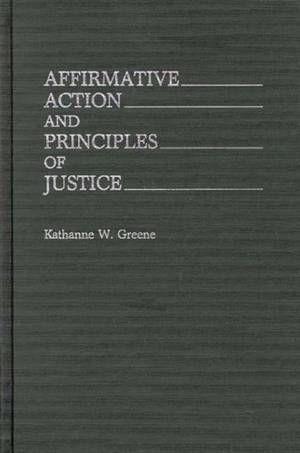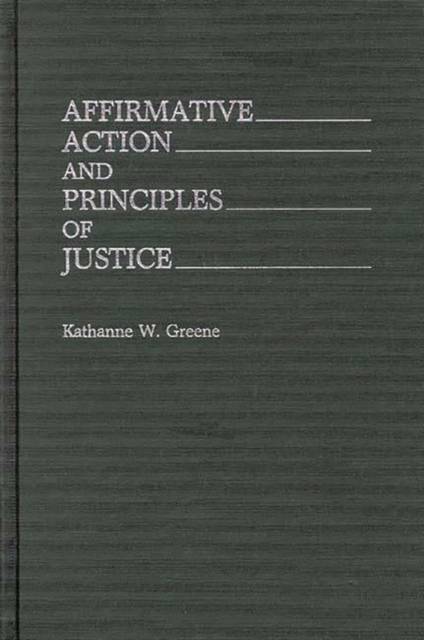
- Retrait gratuit dans votre magasin Club
- 7.000.000 titres dans notre catalogue
- Payer en toute sécurité
- Toujours un magasin près de chez vous
- Retrait gratuit dans votre magasin Club
- 7.000.0000 titres dans notre catalogue
- Payer en toute sécurité
- Toujours un magasin près de chez vous
Description
A thorough examination of philosophical and legal issues, Affirmative Action and Principles of Justice systematically explores a vitally important yet complicated and confounding subject. Affirmative action is also an emotionally loaded area of experience and one that is difficult to assess because of the strong sentiments that arise among individuals confronting the issue.
The book is divided into five sections: the first defines the principles of justice involved and delineates the issues; the second presents a legislative history of Title VII from early civil rights efforts through Kennedy's proposals on the subject, the Reagan EEOC, and Title VII and the Supreme Court; a third chapter scrutinizes early Title VII employment discrimination case law, defining discrimination and considering goals and quotas; a fourth chapter reviews landmark affirmative action cases and provides an overview of the state of affirmative action case law. The concluding chapter addresses affirmative action, policymaking, and statutory interpretation by surveying the legislative history of Title VII of the Civil Rights Act of 1964, as well as early Title VII employment discrimination cases, and probing the philosophical basis of affirmative action. A must-read study for legal and legislative historians, students and scholars of the affirmative action process in the United States, policymakers, legislators, and practicing attorneys.Spécifications
Parties prenantes
- Auteur(s) :
- Editeur:
Contenu
- Nombre de pages :
- 195
- Langue:
- Anglais
- Collection :
- Tome:
- n° 53
Caractéristiques
- EAN:
- 9780313266782
- Date de parution :
- 20-11-89
- Format:
- Livre relié
- Format numérique:
- Genaaid
- Dimensions :
- 165 mm x 213 mm
- Poids :
- 494 g

Les avis
Nous publions uniquement les avis qui respectent les conditions requises. Consultez nos conditions pour les avis.






